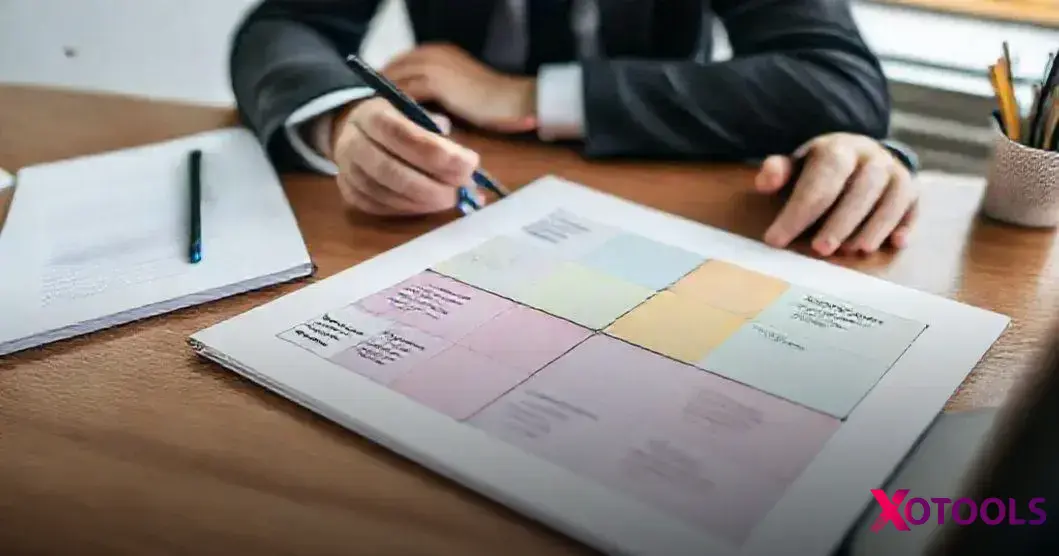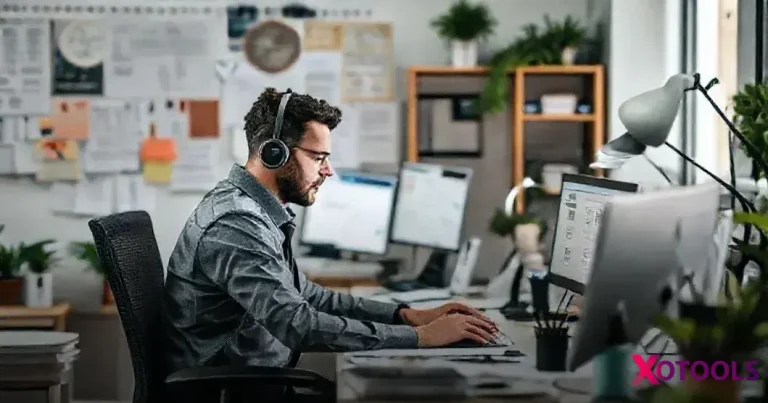ADVERTISEMENT
Productivity Tips for Busy Professionals help you make the most of your time without feeling overwhelmed. By focusing on what truly matters, you can achieve more while maintaining balance in your day.
From optimizing your workspace to using the right tools, small changes can have a big impact. Learning how to prioritize tasks and manage distractions effectively allows you to stay on top of your goals.
Boosting productivity doesn’t have to be complicated or stressful. Keep reading to discover practical strategies and techniques that will help you work smarter and get results with less effort.
mopUnderstanding Productivity
Understanding productivity is essential for busy professionals. It refers to how effectively you can use your time and resources to achieve goals. Productivity is not just about working harder; it is about working smarter. By focusing on what truly matters, you can get more done in less time.
Many factors influence productivity. These include your environment, the tools you use, and your mindset. For instance, a cluttered workspace can lead to distractions, while an organized one can boost focus. Additionally, using the right tools can streamline tasks, making it easier to stay on track.
To truly maximize your efficiency, you should identify your peak productivity hours. Everyone has times during the day when they feel more alert and focused. By scheduling important tasks during these peak times, busy professionals can achieve better results and reduce stress.
Essential Tools for Time Management
Using essential tools for time management can make a big difference for busy professionals. One popular tool is a calendar app. It can help you plan your day and set reminders for important tasks. Having a clear schedule allows you to see what needs to be done, keeping you organized and on track.
An additional valuable tool is a task management app. These apps let you create to-do lists, set deadlines, and track your progress. By breaking your work into smaller tasks, you can focus on one thing at a time. This approach reduces stress and increases efficiency.
Finally, using time-tracking software can help you see how you spend your day. By understanding where your time goes, you can identify distractions. This knowledge enables you to make better choices and manage your time more wisely. Adopting these tools can lead to better productivity and a more balanced work life.
Prioritizing Tasks Effectively

Prioritizing tasks effectively is crucial for busy professionals. It helps you focus on what matters most. Start by listing your tasks for the day. Once you have your list, consider which tasks are urgent and which are important. This can guide you on where to spend your time and energy.
Use a simple method like the Eisenhower Matrix. This method divides tasks into four categories: urgent and important, important but not urgent, urgent but not important, and neither urgent nor important. By sorting your tasks this way, you can clearly see which ones you should tackle first.
Lastly, be flexible with your priorities. Sometimes unexpected tasks or changes arise. When this happens, revisit your list and adjust your focus. Being adaptable helps you stay productive and make the most of your time, ensuring that you complete the most critical tasks effectively.
Creating a Productive Workspace
Creating a productive workspace is important for getting work done efficiently. Start by organizing your desk. A clean and tidy workspace helps reduce distractions. Keep only essential items within reach. This will help you focus on your tasks and improve your overall productivity.
Proper lighting can also enhance your workspace. Natural light is best, as it can improve your mood and energy levels. If that’s not possible, use bright, adjustable lighting. A well-lit space makes it easier to see your work and keeps you awake and alert.
Finally, consider adding personal touches to your workspace. A few plants or motivational quotes can make a big difference. These small elements can boost your mood and inspire creativity. A workspace that reflects your personality can lead to greater satisfaction and increased productivity.
Using Technology to Boost Productivity
Using technology to boost productivity is essential for busy professionals. Tools like project management apps can help you organize tasks and track deadlines. These apps allow you to see what needs to be done and help you prioritize your workload. With everything in one place, it’s easier to stay focused and efficient.
Additionally, communication tools can enhance teamwork and collaboration. Apps like messaging platforms enable quick updates and discussions with your team. This reduces the time spent in long meetings, letting you get back to your work faster. Clear communication helps everyone stay aligned and work more effectively.
Finally, automation can save you a lot of time. Use technology to automate repetitive tasks, like scheduling emails or setting reminders. This frees up time for more important tasks that require your full attention. By integrating these technological tools into your workflow, you can significantly boost your productivity and achieve more.
Mindfulness and Focus Techniques

Mindfulness and focus techniques can greatly benefit busy professionals. One effective method is to practice deep breathing. Taking a few moments to breathe deeply can calm your mind and reduce stress. Try inhaling slowly through your nose, holding for a moment, and exhaling through your mouth. This simple practice can help clear your thoughts and improve your concentration.
Another technique is to set specific times for distractions. Instead of letting notifications interrupt your work, designate certain times to check emails or messages. This way, you can focus fully on your tasks without interruptions. Over time, this method can train your brain to stay focused and be more productive.
Lastly, consider using guided meditation or mindfulness apps. These tools offer short sessions that help you stay present and centered. Just a few minutes of meditation can reduce anxiety and improve focus. By incorporating these mindfulness techniques into your routine, you can enhance your ability to concentrate and manage stress effectively.
Setting Achievable Goals
Setting achievable goals is key for busy professionals who want to stay productive. Start by making your goals specific and clear. For example, instead of saying, “I want to improve my work skills,” state it as, “I will complete an online course in my field by the end of the month.” Clear goals help you understand exactly what you need to do to succeed.
Next, break your goals into smaller, manageable steps. This makes them less overwhelming and easier to track. If your goal is to finish a big project, divide it into smaller tasks. Set deadlines for each task to keep yourself accountable. These small wins will motivate you and make the overall goal feel more achievable.
Finally, regularly review your goals and progress. Take time each week to ask yourself if you are on track. If you find you’re falling behind, adjust your steps or timeline. This flexibility allows you to stay productive without feeling stressed. By setting realistic goals and checking your progress, you’ll achieve more while maintaining a healthy balance in your work life.
Balancing Work and Personal Life
Balancing work and personal life is essential for long-term success and happiness. Many professionals find it hard to separate their work from their personal lives. One way to achieve balance is to set clear boundaries. Determine specific work hours and stick to them. This ensures that you are fully present at work and can enjoy your personal time without distractions.
Another effective strategy is to prioritize self-care. Make time for activities that nourish your body and mind. Whether it’s exercising, reading, or spending time with family, these moments are vital. When you take care of yourself, you recharge your energy and improve your focus at work.
Finally, communicate openly with your employer and family about your needs. Discuss flexible work options if possible, or let your loved ones know when you need uninterrupted time to focus. Open communication can help you manage expectations and create a supportive environment, making it easier to maintain a healthy work-life balance.







